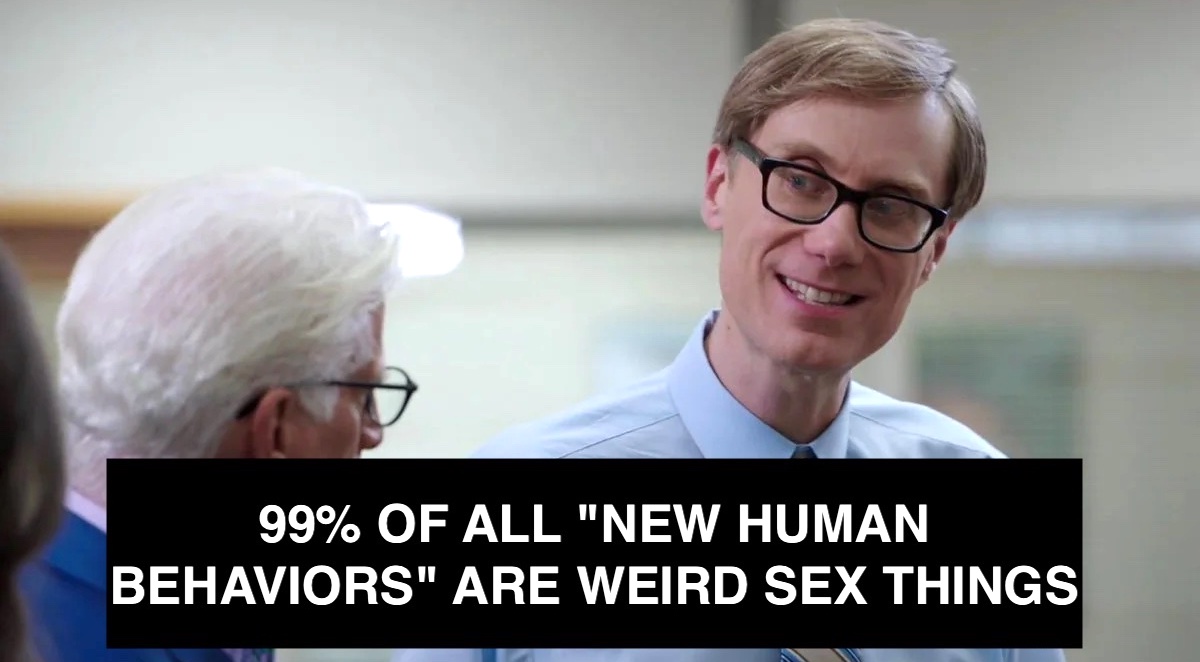Does Oxford Not Know the NSFW Popularity of Their Word of the Year?
They did WHAT?

For the first time in history, Oxford English Dictionary (OED) included the larger public to vote for their Word of the Year. This egalitarian approach is really cool because academia can sometimes really take a top-down approach to popular culture. At the same time, opening up to everyone in an accessible way also led people to vote overwhelmingly for a phrase, “goblin mode,” that became more popular for NSFW reasons …
Let’s start with the relatively mundane reasoning and meaning as explained by the OED. They write on the Word of the Year page:
‘Goblin mode’ – a slang term, often used in the expressions ‘in goblin mode’ or ‘to go goblin mode’ – is ‘a type of behaviour which is unapologetically self-indulgent, lazy, slovenly, or greedy, typically in a way that rejects social norms or expectations.’
Phrases and word meanings are always in flux as more people adopt them, so this is technically also true. OED goes on to say some of this came from the attitudes of the young people as Covid-19 restrictions prematurely eased. After one to two years of never leaving the house, many people either felt like this cave creature lifestyle was the best thing or became extra reckless because they felt like they needed to make up for the feeling of lost time, lost moments like graduations and proms, and lost people.
The further analysis from OED, while interesting, misses the mark, at least to me, and they’ll see that from the reactions—well, from the reactions that are not the same old “that’s made up” (like all words are) or “how come I’ve never heard of it, then?” (from people disconnected from deeply internet culture).
You know the drill. This next part is about to get kinda nasty.
Goblin Mode, emphasis on the hedonism
So goblin mode online is often times (but of course not always) referring to “animalistic” sex. Everyone has different boundaries for what that means because one person’s kink is another person’s vanilla. Even having sex for pleasure is seen as animalistic by some. Imagine what the threshold is for wild sex. Now, turn the dial a bunch of notches. That’s goblin mode. It’s massive rise began with a manipulated image posted by @Juniper on Twitter in mid-February 2022. This wasn’t explicitly about sex. However, as people sought answers, the last Urban Dictionary entry (and still the one with the most engagement) said sex.
Let’s be clear: I’m not saying it shouldn’t have won. I’m just giving everyone who’s out of the loop some context. When anything is up for a vote on the internet, organizers should consider how this may or may not have an origin involving sex. I’m not anti-sex, but I know some brands want to keep a certain image and using the phrase “goblin mode” will … not do this. (I’m looking at you, random email I got from a company months back that used it in the subject line.)
Other considerations for open voting and Goblin Mode
This isn’t even the first time something like this has happened. When you give the internet options, it will quickly become a meme, especially if it ends up on a message board or under a trending hashtag where people campaign for the fun of it. In March 2016, the internet overwhelming voted to name a U.K. multi-million dollar research vessel Boaty McBoatface. There are also hundreds of cases of fathers with signs that say something along the lines of “If this post gets one million votes, my wife will let me name our newborn child Optimus Prime.”
Another thing missing from the OED announcement is that this phrase also has remnants of antisemitism. Goblins and trolls have been (and are still used) as stand-ins for antisemitic ideas of Jewish people. Think of the goblins in Harry Potter. The core traits of goblins are human-esque figures with large noses and greediness with money. If you go back and read the various definitions, it’s not like they stray that far from the word goblin.
Most people see these creatures in relation to the fantasy genre, but the genre has been influenced by passed-down ideas and tropes that are often harmful. This isn’t to discredit the use of the word or how people use it in relation to their sex lives or comfort in holing up inside (more like a vampire). However, I think it’s important to acknowledge.
(featured image: NBC)
—The Mary Sue has a strict comment policy that forbids, but is not limited to, personal insults toward anyone, hate speech, and trolling.—
Have a tip we should know? tips@themarysue.com